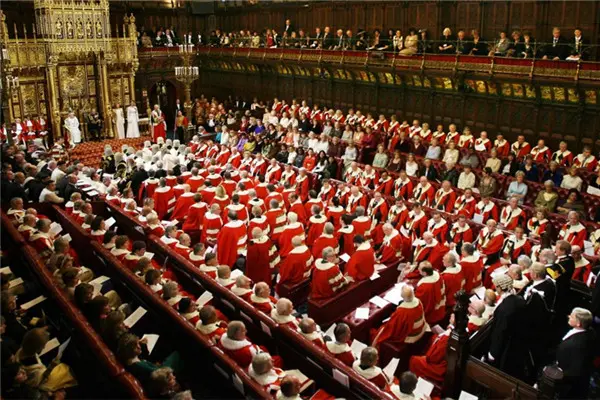A committee of politicians from Britain's House of Lords said in a report Tuesday that parliament should be consulted before the measure paving the way for Brexit is triggered.
The upper chamber's Constitution Committee made the recommendation in a report about the invoking of Article 50, the legal measure that will start the irreversible process of Britain leaving the European Union.
The latest move came weeks after British Prime Minister Theresa May said that the triggering of the Article 50 did not need the approval of parliament.
In her first post-summer recess cabinet meeting earlier this month, May reiterated her insistence that "Brexit means Brexit," saying, "that means there's no second referendum; no attempts to sort of stay in the EU by the back door."
Advisors to May fear that involving parliament in the Brexit process risks delaying or even wrecking the Brexit process with many politicians in both houses opposed to Britain leaving the EU. Political commentators have already said the House of Lords' report will be viewed as a direct challenge to 10 Downing Street.
The committee says it would be "constitutionally inappropriate and would set a disturbing precedent" for the government to act on the EU referendum without explicit parliamentary approval.
A statement issued by the Houses of Parliament Tuesday stated: "The committee says that the referendum result was clear, and that parliament is responsible for ensuring the government implements that result and takes forward Brexit negotiations in a way that achieves the best possible outcome for Britain as a whole.
"Parliament and the government will need to work together with a mutual respect for each party's constitutional role -- and that starts with the parliamentary involvement and assent for the invoking of Article 50."
The report points out that although the EU referendum was, in legal terms, advisory, it was accompanied by a clear undertaking by the government, based on a manifesto commitment, to implement the decision reached in the referendum.
Pro-EU protesters take part in a rally outside the House of Commons. Photo: express.co.uk
"In the UK's representative democracy, it should be parliament which takes the decision to act following the referendum," it added.
The committee wants the parliament to play a central role in the decision to trigger Article 50 and have a key role in scrutinizing both the Brexit negotiations and in approving the final deal between Britain and the EU.
It adds that it is unclear whether Article 50, once triggered, could be unilaterally reversed by Britain.
Parliament, it says, should act on the assumption that triggering Article 50 would be irreversible, and that Article 50 should be triggered "only when it is in the UK's best interests to begin the formal two-year negotiation process."
Lord Lang of Monkton, chairman of the committee, said Tuesday: "The referendum result was clear and it is right that the government is preparing to take Britain out of the EU.
"However, our constitution is built on the principle of parliamentary sovereignty and the decision to act following the referendum should be taken by parliament.
"Parliament should be asked to approve the decision to trigger Article 50, a decision which will start the formal process of the UK leaving the EU and set a deadline for the UK's exit."
Lord Lang said parliament's assent could be sought by legislation or through resolutions in both the House of Commons where MPs sit and the House of Lords.
An Act of Parliament, he added, would give greater legal certainty and could be used to enshrine the "constitutional requirements" required by Article 50.
Lord Lang concluded: "Parliament and the government will need to work together to ensure that the UK achieves the best possible outcome when it withdraws from the EU. It is therefore important that parliament plays a key role in scrutinizing the Brexit negotiations once Article 50 is triggered. We all want the negotiations to produce a deal that works for both the UK and the EU."
(APD)
 简体中文
简体中文

